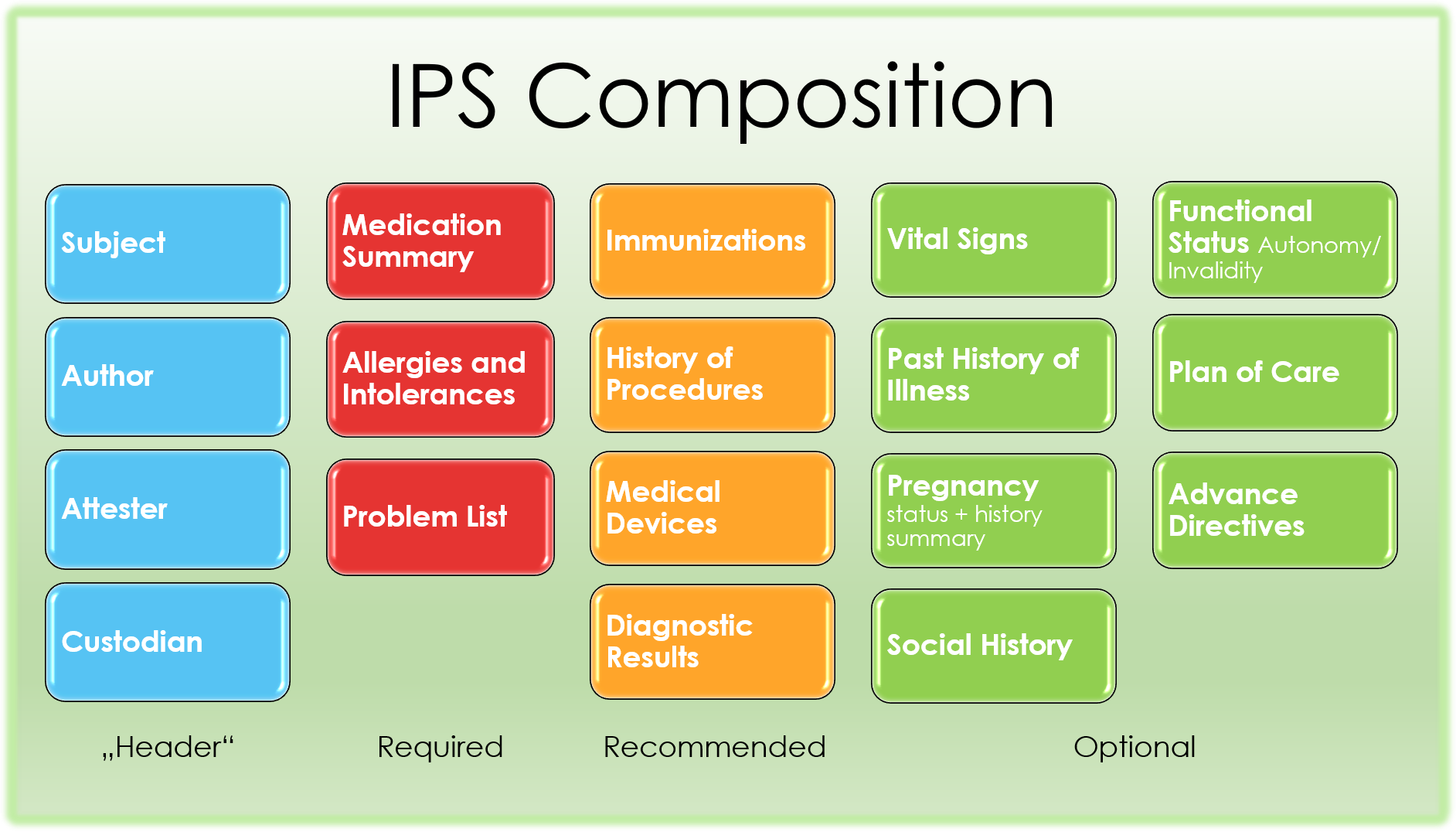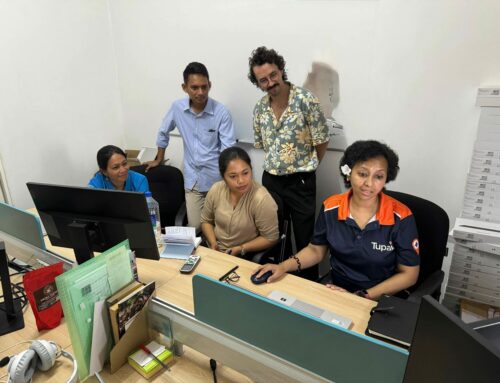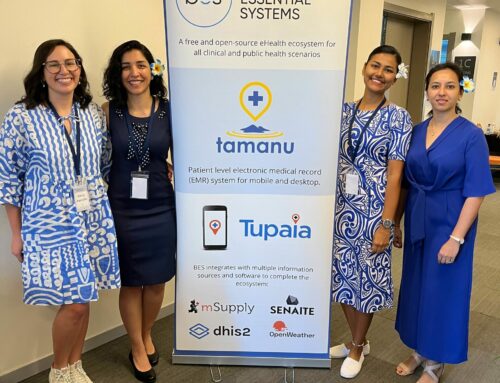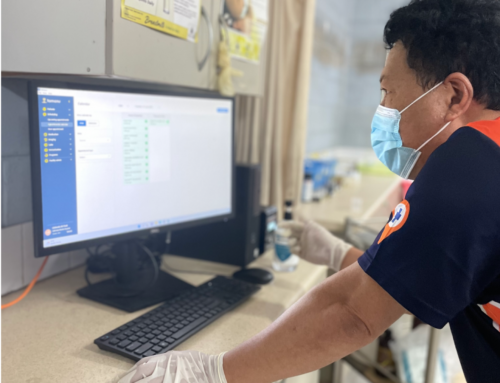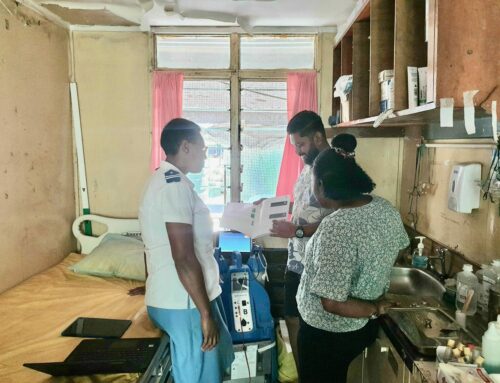We are proud to be launching Tamanu’s International Patient Summary (IPS) this week at a dedicated Connectathon during Health Informatics New Zealand conference in Hamilton NZ. This event draws together global digital health providers for the purpose of showing off their IPS implementation and sharing ideas on patient data exchange as they move between services and countries.
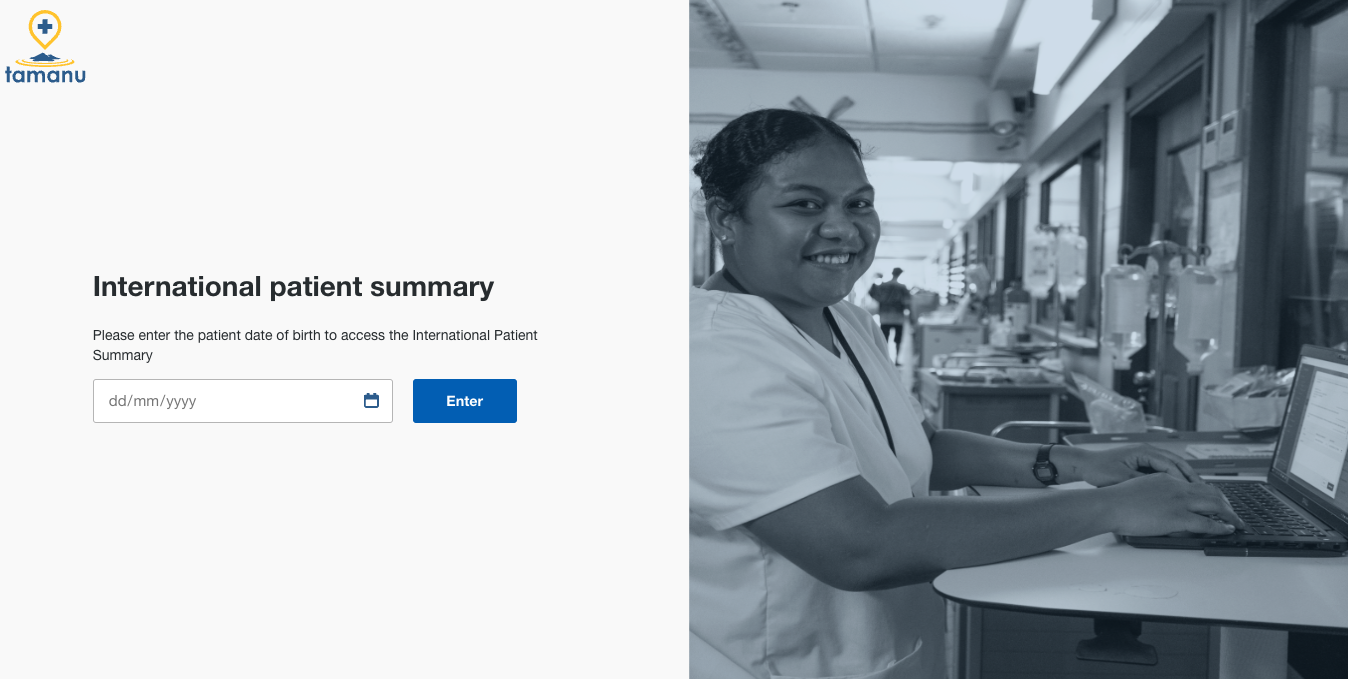
What’s an international patient summary?
The IPS is an HL7 FHIR compliant data extract that contains a patient’s medical data for the purpose of international travel. Think of someone needing to travel to overseas for emergency surgery. IPS enables that person to bring with them their current medical conditions, medication, allergies, vaccination history, all critical information for a surgeon to know in the destination country.
The data is encrypted via the Smart Health Link protocol and stored on the cloud. Meanwhile the patient receives a QR code via email that can be printed or kept in a digital format, so that when they travel, they can take a link to their medical data with them.
The Pacific Story
The IPS is particularly important in the Pacific where regional mobility is high and travel for economic, cultural and medical reasons is common.
This month’s announcement that the Australian government will offer permanent residency to Tuvalu citizens demonstrates how climate change will accelerate mobility within the region, strengthening the need for a patient’s data to travel with them.
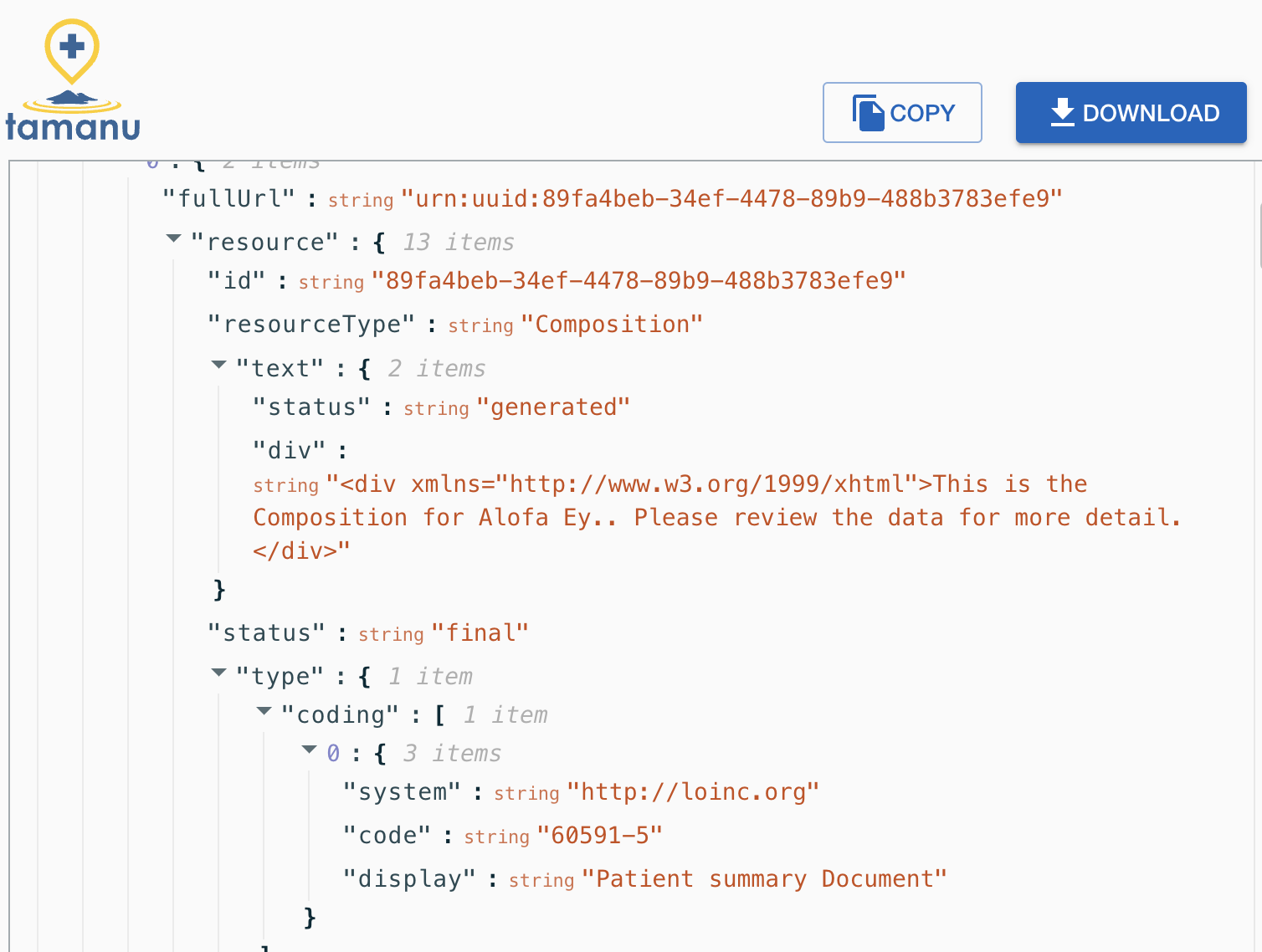
Global Standards
The international patient summary will be the second of Tamanu’s features developed expressly to support regional mobility, the first being Fiji’s vaccination passport system developed during COVID. Given the IPS’s intent is to be used across borders, it provides a strong incentive for countries to consider adopting global standards like LOINC, SNOMED, ICD10 & ICD11.
International standards like FHIR and these terminologies have huge potential in the Pacific as it allows countries to share data and operate collectively to reap benefits for everything from syndromic surveillance to equipment ordering.
The IPS launch will also be accompanied by a presentation by BES Solution Architect Kurt Johnson and will be available in all deployment countries at request from early 2024.
